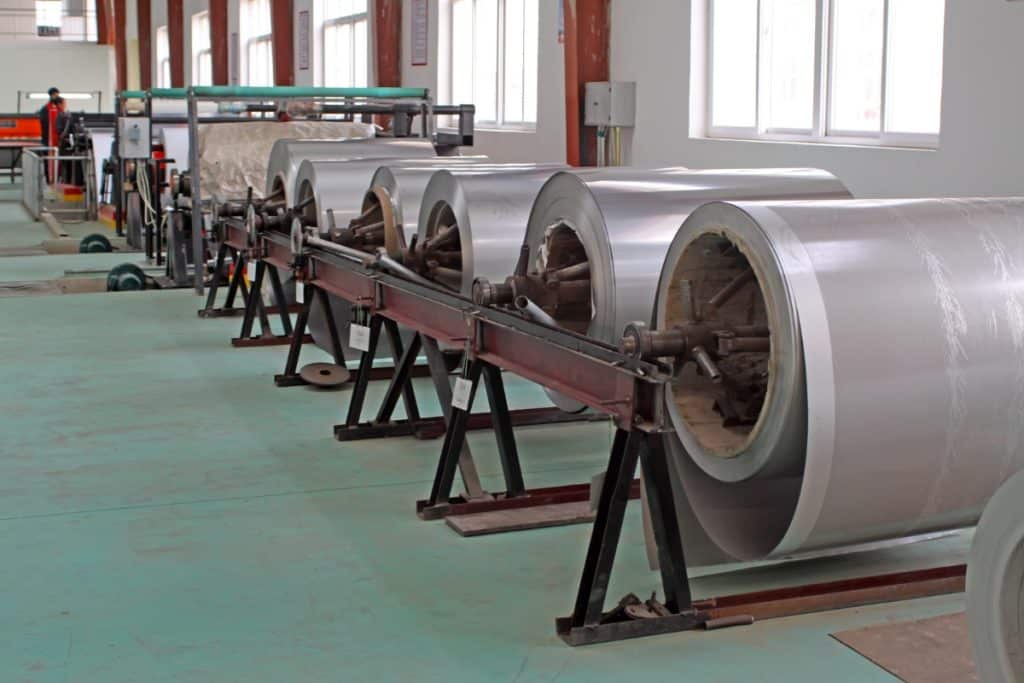Demand planning is a necessary process for businesses that helps meet customer demand for products. The system ensures you have enough inventory to satisfy demand while avoiding supply chain disruptions and optimizing inventory. Ideal forecasting and demand planning will guarantee your business increased profitability and customer satisfaction.
It would be best if you considered an ERP solution instead of the standard inventory management software to optimize materials management. Software like GoldFinch ERP has everything your team needs to improve forecasting and demand planning. Here is how to use ERP to streamline your supply chain and materials management.
What Is Demand Planning?
Demand planning involves analyzing consumer trends, seasonality data, and historical sales to prepare your business for the future. It provides a practical opportunity to forecast demand and find the most efficient approach to meet it.
The demand planning process combines supply chain management, sales forecasting, and inventory management. Using data from internal and external sources, it predicts future demand and advises on the ideal sales and operation strategy to meet the demand.
Businesses find demand planning vital as it allows them to strike the right balance between customer demand and sufficient inventory levels. Excess inventory means you have less working capital, while poor planning results in avoidable supply chain disruptions. It is why you need intelligent demand planning in your firm.
How ERP Helps Manufacturers with Forecasting and Demand Planning
Global Visibility
ERP provides manufacturers with a consolidated view of their entire supply chain. It allows them to make more informed decisions on procurement and purchasing. The greater oversight into specific parts of the supply chain helps executives identify problems early and find practical solutions.
Manufacturers also get information on their inventory from their ERP. This easy access to information gives your team more confidence when responding to customers.
Inventory Management
Manufacturers are better positioned to control and manage their inventory more effectively by integrating ERP software into their processes. ERPs provide a comprehensive inventory tracking system, allowing you to organize and categorize your inventory. An organized inventory means you better understand what’s in store and what is running out.
The inventory management system provided by your ERP helps you know the raw materials consumed and what materials are assigned to which jobs. You also increase the efficiency of your purchasing department by making it easy for them to know when to create new orders.
Vendor Performance
ERP systems provide a more manageable approach for manufacturers to measure their vendors’ qualitative and quantitative factors. Measuring their performance helps your business make more informed decisions on performance improvements. The platform makes it easy to compare vendors based on price, quality, and delivery dates to ensure you find the perfect vendor.
Real-Time Reporting
Real-time reporting is another ERP feature that helps manufacturers optimize forecasting and demand planning. The labor required to create manual reports puts your company at risk of less reporting frequency, leading to poor decisions.
Manufacturers need an ERP for real-time data and reporting. This feature provides access to real-time data on the company’s supply chain performance. The automatic reports are more comprehensive and accurate, allowing decision-makers to keep track of inventory levels better.
Materials Requirement Planning
Materials requirement planning is essential to the seamless operation of any manufacturing business. It refers to the planning and scheduling of inventory control systems and managing the manufacturing process. ERP facilitates MRP by connecting and integrating the different business aspects into a common database, making it easy to streamline tasks and processes.
The ERP solution provides accurate data for your manufacturing business, helping you reduce costs and increase efficiency. It provides a comprehensive management system to allow for material planning, integration of transactions, and other operations in one platform.
What is the Role of ERP in Material Management?
Material Valuations
ERP helps with valuations, which involve determining the final price of materials recorded in the general ledger. These figures are crucial for financial accounting and help with tracking and moving materials. GoldFinch ERP is among the few solutions with a comprehensive inventory valuation method to help with forecasting and demand planning.
Multi-Location Inventory
Most manufacturing firms have more than one distribution unit to optimize supply chain management, especially for consumer goods. Your ERP solution focuses on fulfilling the complex needs of multi-location inventory tracking. It helps maintain kits and assemblies, lot tracking, specific costing, multiple units of measure, and serialized inventory.
Serial Traceability
Lot traceability involves tagging items’ parts and finished goods with serial numbers to control and monitor them from receipt to shipment. Your ERP tags them for materials management and maintains all records from when they are received until it’s shipped. The system provides instant access to all information on each serial number.
Product Life Cycle Management
Manufacturing companies rely on new products for growth and profitability. However, a product’s success significantly depends on its stage. An ERP can help conduct a proper analysis to estimate which products sell more and which need revamping. This analysis enables you to use your resources more effectively, focusing on them where required.
Scheduling and Resourcing
ERP in materials management enables your manufacturing company to plan resources efficiently. It does so by streamlining all activity planning and work order scheduling. Your team becomes better positioned to schedule preventive maintenance and initiate corrective maintenance without interrupting your supply chain.
Why Use GoldFinch Demand Planning?
GoldFinch is among the most effective platforms to help with demand forecasting. It enables you to manage supply planning by allowing you to perform forecasting, configure planning parameters, and execute Master Resource Planning, helping you calculate supply orders.
There are two options available:
- Basic Demand Planning
• Planning parameters
• Stock keeping units
• Sales forecasting - Advanced Demand Planning
• Calculated planning parameters
• Supply plan daily calculations routine
• Forecast consumptions
• Calculate forecasts
• Item usage
• Sales forecast summaries
• Item usage adjustment
• Update demand planning set up
It would be best to implement an ERP to boost inventory flow in your manufacturing company. Learn more about leveraging GoldFinch ERP to improve demand planning and forecasting by contacting us today.



